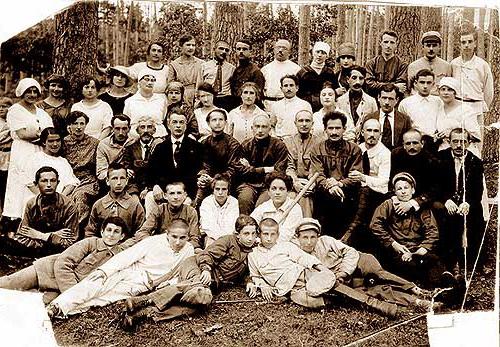Herbal treatment of diseases. Herbal Treatment
At home, for the preparation of medicinal remedies for alternative treatment with herbs, various parts of plants can be used. Treatment medicinal herbs at home allows the use of freshly picked plants. But more often all the same, grass, leaves, bark, flowers and inflorescences, buds and seeds, berries and fruits, bulbs, roots, tubers and rhizomes are used already dried. Having given the water contained in them, after drying, medicinal herbs retain all biologically active substances.
In drawing up medicines it is very important to observe the dosage. This is especially important if the plant has contraindications, side effects are possible, or some parts of the culture used may be slightly poisonous. Herbal treatment at home is becoming more common. We will discuss how it is carried out.
Herbal treatment at home
Alternative treatment with medicinal herbs is carried out through recipes. Usually, in recipes for medicinal products recommended for home cooking, crushed herbal ingredients are given in weight or measured in volume parts. Sometimes one should be transferred to another. It follows from the fact that on average:
1 teaspoon contains 5 g of chopped plant material,
1 dessert spoon - 10 g;
1 tablespoon “without top” - 15 g;
1 tablespoon full “with the top” - 20 g;
1 cup of water - 200 ml;
1 cup of vegetable oil - 200 ml.
Alternative treatment with medicinal herbs at home has existed since time immemorial, some recipes have been passed down from generation to generation. Dosage forms can be prepared in different ways:
Use 1 plant component (grass of one species);
Apply fees - grind several species of plants individually, weigh or measure in the right ratio and mix.
For the treatment of many diseases, you can choose herbs. Before people who prefer to be treated with herbs, the question often arises, which is more useful: herbal collection or products prepared from one plant? There is no consensus among herbalists. Therefore, one should proceed from one’s own sensations, independently choosing the desired shape.
What medicinal herbs for treatment to buy in a pharmacy
If you do not want or do not have the opportunity to collect herbs, you can just go to the pharmacy and buy herbs at the pharmacy, to cook later at home. Now on the boxes with herbs appeared annotations describing how to use them. If there is no such annotation, then the medicinal herb has not passed clinical trials and its therapeutic effect has not been proven. Such studies are very expensive, and not every manufacturer will undertake to finance them - because the profit from the sale of herbs and herbal fees is low. However, if you have a specialist’s prescription, you can safely purchase drug fees without annotation. After all, the herbalist receives information about herbs from many sources, including from his experience.
It is very important to remember that herbal collection is a medical preparation, it has certain dosage parameters, recommendations on the frequency of use in various cases. You can also ask for advice from traditional doctors, naturopaths, and especially herbalists who are very experienced and have the knowledge of more than one generation of herbalists. Ask them about potential side effects or interactions with other herbs and medicines.
Poisonous herb treatment
When using plants for medicinal purposes, it must be remembered that herbs, like any medicine, have not only indications for use, but also contraindications, especially if you practice treatment with poisonous herbs. They must be taken into account when compiling the collection and preparation of the drug. In addition, some plants contain toxic substances. Separate parts can be poisonous, but most often the whole plant poses a mortal danger. The toxic properties of most crops are not lost by drying or heat treatment. With an improperly selected composition or norm, even some non-toxic plants can cause poisoning, so herbal medicine requires a cautious attitude and a mandatory consultation with a specialist before consuming herbs.
Toxic Herbal Treatment: Precautions
If you are treating with poisonous herbs, note that the most toxic plants are the hemlock, speckled milestone (cicuta), wolf bast (wolfberry), raven eye (blackberry), and some types of aconite. Severe poisoning cause belladonna berries (belladonna), seeds of black henbane, dope, cocklebur. Cases of poisoning by buckthorn brittle, celandine, colchicum are known. Skin lesions are caused by hogweed and celandine juices.
At home, it is not recommended to prepare medicines from plants containing potent substances, especially alkaloids. These include flat-chested crucifer, common muzzle, carniolian scopolia, lanceolate thermopsis, half-shrub seine rhinegae, Japanese sophora, vomiting root (Ipecacuanha), naked stephanus, physostigma, vomit nut (chilli-billed), chaffinch lobule.
Medicinal herbs for treatment are sold not only in boxes
When you arrive at the pharmacy, you will see that herbs are not only sold as boxed fees. Dosage forms of herbs are very different. The most common are herbal teas, but there are other treatment options for medicinal herbs at home.
Capsules and pills. The easiest to use form of medicinal herbs. But herbalists prefer tinctures and tea, since they believe that it is in this form that the healing ingredients in the most active form are released faster.
Extracts and tinctures. Extract is a more concentrated form than tincture. But now these terms are used interchangeably. To make this form, the herbs are soaked fresh for several days (or weeks) in alcohol of various concentrations. Some tinctures are made with diluted glycerol in water. The mixture is occasionally shaken, then filtered and bottled. Extracts and tinctures of medicinal herbs take 2-3 times a day, dissolving a certain amount of drops in a tablespoon of water.
Herbal preparations. One of the easiest ways to use herbs is to make tea. Fresh or dried leaves or flowers are taken in the amount of 1 teaspoon per glass of boiling water. After welding, insist 10 minutes and strain. Roots, seeds, bark and hard leaves should be poured cold water, boil and simmer for 10 minutes. Strain and sweeten with honey to taste.
Ointments and creams based on medicinal herbs. Usually used for treatment externally. The method of application is indicated on the package.
In all that relates to your health, one thing to keep in mind: not everything that is natural is safe. Most medicinal herbs are indeed such, but some have serious side effects in combination with other medicines, especially if used improperly.
For example, wild tobacco is used to treat arthritis. Improper use can cause respiratory paralysis and cramps.
Golden ball, a powerful antibiotic, helps to cope with colds and generally with any infection. However, for prolonged, chronic infections, it should be taken in 3-week courses with a two-week break, otherwise it is possible to suppress one's own immunity.
Date Created: 2013/11/28
Benefits of Herbal Treatment
Biologically active substances of plants are related to the human body in nature. They are more easily included in the processes of human life, and therefore are better absorbed and relatively rarely cause intolerance to the body. Human evolution and plant evolution are closely related. Mammals, including humans, appeared on the earth after higher plants began to prevail in the plant world.
Medicinal herbs have many advantages over chemicals. Firstly, it is a rich chemical composition of plants that is close to human, as a result of which they are easily digestible and practically do not cause allergies. These are vitamins, hormones, essential oils, organic acids, mineral elements, natural antibiotics, volatile, bioflavonoids, antioxidants, which have a beneficial complex effect on the body. Therefore, plants help a person to recover, especially from chronic diseases. Chemical one-component drugs are alien to humans, often cause allergies and highly toxic. They can not be used for a long time, because they can cause drug diseases. Due to the presence of drugs alien to the human body, he defends himself against them by producing enzymes that destroy them. Therefore, chemical preparations in the medicinal arsenal do not last long, about 10-15 years. Whereas medicinal plants have been used since the appearance of man for many thousands of years.
A qualified collection of herbs allows you to immediately cover the entire set of human diseases, taking into account its individual characteristics. The dosage of infusions and decoctions depends on the age, weight of the person, the type of plants and the diagnosis of diseases. There may be contraindications in some plants as applied to a specific person based on the level of blood pressure, blood coagulation, acidity of the stomach, the work of the large intestine, allergic readiness of the body, etc. When drawing up plant fees, all these factors should be taken into account in order to get the maximum benefit from the use of plants. Everyone who is treated with plants, you must always have at hand a book on medicinal plants. Good knowledge of this particular plant, its chemical composition allows you to pre-imagine the mechanism of its effect on the body. To achieve a high effect from the use of plants, it is equally important to properly prepare, dry, store and properly prepare a plant infusion, decoction, tincture or ointment.
The following are recipes for preparing herbal preparations for various diseases. They are collected from a variety of sources, mostly from the newspaper Vestnik ZOZH, which has the largest circulation in Russia - several million readers. The multimillion-dollar readers of this newspaper share their healing experiences on its pages, send their recipes to their favorite newspaper so that other people can also use the plants that helped them get rid of their diseases. Many ask in letters of advice how to recover from their suffering, and people rush to help them through the newspaper. So the chain of healing recipes spreads all over Russia, but also kindness from person to person. This newspaper is especially needed by sick and elderly people who have a “bouquet” of chronic diseases. Their scanty pension is not enough for more expensive drugs every day. In addition, these drugs do not fundamentally help, moreover, they often cause complications, intoxication, allergic reactions and all kinds of side effectsthreatening a general decrease in immunity - the protection of the whole organism. It is well known that recently a whole stream of counterfeit medicines has poured into the pharmaceutical market of the country, imitating many popular drugs, which at least do not bring any benefit, and sometimes can lead to serious consequences. It remains only to take care of your health yourself. The best way - Do not bring yourself to illness. If you had to get sick, then rely more on natural remedies to increase the healing powers of the body itself.
Herbal Treatment Rules
Herbal treatment is effective subject to several rules:
- herbs should be brewed only in enameled or glassware;
- filter the broths hot;
- do not use old raw materials and plants that are unfamiliar to humans;
- decoctions and infusions to drink only fresh;
- after a month's course of treatment, you need to take a week break;
- during treatment with herbs you can not drink alcohol, spices, fatty foods;
- do not take a long break in treatment, otherwise you will have to repeat the entire course from the beginning.
To be healthy, you do not need to make much effort. One desire is enough to start leading healthy way of life. You should take care of your health in order to give a happy and painless future to your children! It should be remembered that health cannot be bought for any wealth!
Folk healing recipes
- Yarrow Grass 20.0
- Hop cones 20.0
- Valerian Root 30.0
- Lemon balm leaf 30.0
Brew a tablespoon of the mixture with a glass of boiling water and leave for 30 minutes. Strained infusion should be taken in a glass a day as a calming collection for cardiac neurosis and vegetative-vascular dystonia.
- Hawthorn flowers 50.0
- Highlander's Grass 30.0
- Horsetail Grass 20.0
Brew 2 teaspoons of the crushed mixture with a glass of boiling water and leave for 1-2 hours. Strained infusion to drink during the day with insufficient blood circulation.
- Motherwort herb 1 part
- Swamp grass marsh 1 part
- Hawthorn flowers 1 part
A glass of collection brew 1 liter of boiling water to cool and strain. Take with hypertension I-II tbsp. 100 ml 3 times a day half an hour before meals.
Anemia (anemia)
- Rosehip, fruits 5 tablespoons of chopped fruits per liter of water. Boil for 10 minutes. Wrap up for the night. Drink tea at any time of the day with anything. Perfectly cleanses the circulatory system, improves metabolism. The infusion is rich in vitamins and is used for anemia, scurvy, kidney and bladder diseases, and for a sick liver as a tonic.
- With anemia, fees are used: nettle leaf, yarrow flowers, dandelion root (equally). Brew a tablespoon of the mixture with 1.5 cups of boiling water, leave for 3 hours, strain. Drink 3-4 meals a day 20 minutes before meals. The course of treatment is 8 weeks.
Bladder and kidney disease
- Air marsh. Take calamus infusion 1/2 cup 4 times a day (pour a teaspoon of crushed raw materials with a glass of boiling water, leave for 20 minutes, strain). Drink 30 minutes before meals.
- Knotweed grass - 1 part, lingonberry leaf - 1 part, nettle leaf - 2 parts, St. John's wort grass perforated - 3 parts. 4 tablespoons of the mixture brew 0.75 liters. boiling water, insist 1.5-2 hours in a warm place, strain. Drink a glass 3 times a day 30 minutes before meals with kidney stones. The course of treatment is long, every 8 weeks a two-week break.
Elecampane british
It has a pronounced expectorant and anti-inflammatory effect, it is used for bronchitis, pneumonia, bronchial asthma, tuberculosis and whooping cough. As an anti-inflammatory drug, elecampane is effective in gastritis, colitis, diseases of the liver and gall bladder, and diseases of the urinary tract. Elecampane has a normalizing effect on the intestines both with diarrhea caused by chronic enterocolitis, and with the usual constipation, effective for painful periods. Elecampane root - good remedy with rheumatic diseases and metabolic diseases: gout, nonspecific arthritis and exudative diathesis. Elecampane has a hemostatic and wound healing effect. It is used externally for eczema, skin rashes, neurodermatitis, difficult to heal wounds, and gum disease.
Methods of preparation and use
- 1 tbsp. a spoonful of crushed roots is poured with 1 glass of boiling water, boiled for 10-15 minutes, cooled for 30 minutes and filtered. Take 1-2 cups in a warm form every 3 hours (expectorant).
- 2 teaspoons of chopped roots pour 2 cups of boiled water, boil for 8 hours, filter. Take 1-4 cups 3-4 times a day 20 minutes before meals.
- The chopped roots of elecampane (100 g) are poured into 1 liter of water, boiled for 15 minutes, insisted and filtered. Apply for baths and washes.
Vintage cooking methods
- Making wine from the roots of elecampane: 5 tbsp. l roots (about 30 g) are mixed with 30 g of alcohol, left for 24 hours. Then 1 liter of dry grape wine is diluted, stirred, squeezed and filtered; drink before meals 30-40g with poor digestion and lack of appetite.
- Preparation of ointment for external use: 180 g of the root is poured 360 g of water, boiled, wiped through a sieve and mixed with 120 g of lard or with butter without salt.
Horsetail
Horsetail has anti-inflammatory, disinfectant, diuretic, hemostatic, cardiotonic, restorative, wound healing and astringent action. Horsetail helps to normalize water-salt metabolism, remove cholesterol, various toxic substances, and toxins.
The plant is added to the collection in the treatment of hypertension, atherosclerosis, gout and poorly healing wounds. The horsetail is best known in folk and scientific medicine as a diuretic and anti-inflammatory agent for diseases of the kidneys and bladder, edema of various etiologies, and also for exudative pleurisy.
Methods of preparation and use
- 4 teaspoons of horsetail grass is poured with 2 cups of boiling water, infused for 15 minutes, filtered and a warm infusion is drunk for 1 day (diuretic).
- Horsetail grass (50 g) is poured with 3 cups of cold boiled water, insisted for 1 day, filtered. Take externally for baths, rinses and compresses (anti-inflammatory agent).
Contraindications. In diseases accompanied by severe damage to the renal parenchyma (nephritis and neurosis), horsetail infusion should be used with caution, since silicic acid and some other substances contained in it have an irritating effect.
The use of plants with medicinal purposes in medicine has by now taken shape into a scientifically based system of therapeutic measures - drug therapy with plants (herbal medicine). Unlike chemotherapeutic agents, medicinal plants contain organic and inorganic compounds with a wide range of biological effects, which are involved in redox reactions, are part of enzymes, and have beneficial effects on metabolic processes in the body. In addition to the selective effect on a particular affected organ, they are able to enhance non-specific defense reactions, i.e. play the role of biological stimulants that increase the level of vital activity of the whole organism.
Medicinal herbs are similar in composition to edible plant substances, therefore, do not cause adverse reactions during prolonged use. In addition, almost all higher plants used in medicine contain vitamins and volatile, with bactericidal and antiviral effects.
To solve all the mysteries of plants, you need to trust them, make friends with them, know them as friends, by name and character, and then they can help us in everything.
Having studied wild medicinal plants, we can come to the following conclusions:
- It is necessary to study medicinal plants of the native land;
- Medicinal plants help to cure many diseases;
- Weaknesses in medicinal plants, but there are fewer;
- Only a certain part of the plant (root, leaves, fruits, flowers) has medicinal properties. This must be remembered when collecting medicinal plants.
- Each collection plant has its own collection time and rules for drying plant parts. This must be remembered and known, otherwise there will be no benefit from them.
Modern medicine suggests the use of medications for most diseases. But despite the latest pharmacological developments, the use of such substances can be quite dangerous. This is due to the artificiality of substances and with many side effects. That is why many people turn their attention to the advantages of natural medicines, and in particular to herbal remedies.
Medicinal herbs have been used since ancient times. Nature has created a huge amount of substances that affect various processes in the human body, normalizing and improving them. Most of these substances are found in plants.
Benefits of Using Herbs for Treatment
Now alternative treatment Herbs are gaining popularity as opposed to standard chemical drugs. Natural substances contained in plants affect the body more gently. Of course, they can cause allergic reactions and side effects, but to a much lesser extent. If you follow the dosage of drugs from medicinal herbs, then they will not bring harm. At the same time, medications act tough: when treating one organ, several others often suffer.
In the treatment folk remedies it is possible to provide a comprehensive effect immediately on the all-diseases that a person has. The most important thing is to choose the right recipes or make an herbal collection that will cover the maximum number of problems. The action of medicinal herbs is not narrowly targeted. The same plant can positively affect several organs at once. Most herbs mix well.
The disadvantages of herbal medicine
When treating with decoctions of herbs, it should be remembered that they also have certain disadvantages. They are also associated with the characteristics of the effects of these drugs.
- Firstly, severe, advanced diseases are not treated with medicinal herbs. In these cases, herbal medicine can be used as a supportive, additional way, but not as the main treatment. You should not treat only herbs, cancer, diabetes and much more.
- Secondly, the mild and gradual effects of herbal remedies, as well as the difficulty of accurate dosing, make them useless for emergency care. When an urgent and strong effect of a medicine on any organ is needed, herbs are not suitable. Many of them have a cumulative effect, it is required to be taken for weeks, and in some cases for months.
- Thirdly, herbal preparations also have contraindications, which must be taken into account. Some plants, according to one of the effects, are capable of mutually exclusive of each other, which does not allow them to be used in one collection. A specialist should compile the collection, who is well versed in all the features of such medicinal raw materials.
- Fourth, it is far from always possible to obtain high-quality medicinal raw materials.






